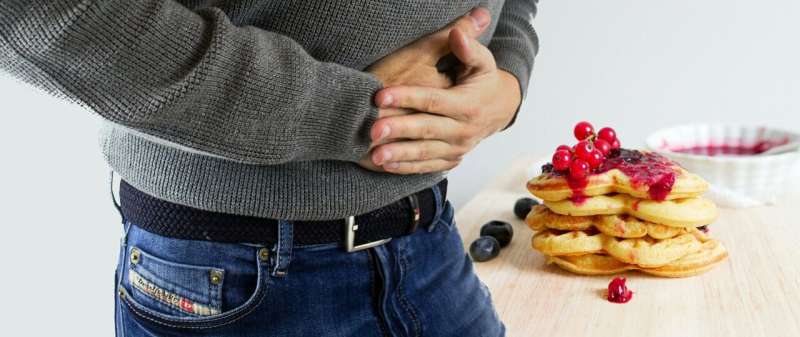
Credit: Pixabay/CC0 Public Domain
Diverticulitis is a fairly common condition, especially as you get older. What you should eat when suffering from this intestinal condition depends on where you are in the process. For reasons that are not completely understood, small pockets called diverticula can form in the lining of the gastrointestinal tract. The presence of such pouches is called diverticulosis.
Most people with diverticulosis do not develop further problems. However, if any of these projections in your intestines are infected or inflamed, it’s a different story. This is called diverticulitis, and it is a painful condition that often requires medical attention.
How does diverticulosis develop in the first place?Diet appears to play a big role, according to a 2021 systematic review of the topic published in the journal nutrients. For example, recent studies have shown that the higher your intake of dietary fiber (found only in plant foods), the lower your risk of developing diverticulosis or diverticulitis.
The amount of fiber in your diet depends on what stage you are at. To recover from a diverticulitis attack, a diet low in fiber is usually recommended. After that, the National Institute of Diabetes and Digestive and Kidney Diseases (NIDDK) recommends gradually returning to your normal intake of dietary fiber (25 grams is a good goal for most people).
Good sources of dietary fiber include fruits, vegetables, legumes, and whole grains. For example, a half cup of raspberries contains 4 grams of fiber. There are 5 grams in 1 cup of boiled broccoli. And just 1/2 cup of cooked beans contains about 8 grams of dietary fiber.
The nutrition facts label on packaged foods lists the amount of dietary fiber in each serving. Foods that claim to be “rich in fiber” must contain at least 5 grams of fiber per serving.
Are there other ways to reduce the risk of this disease? Liquids, liquids, liquids, especially water and other sugar-free drinks. This is especially important when increasing your fiber intake. And if your regular diet includes more meat than vegetables, experts say it’s time to reverse that ratio. Excessive meat consumption is also a risk factor for diverticular disease.
What about nuts, popcorn, sunflower seeds, etc.? Although these foods are typically restricted when recovering from diverticulitis inflammation or infection, current research shows that these foods are not harmful to patients with diverticulitis unless they cause discomfort. is suggested.
Physical activity has also been shown to help prevent the pain caused by this condition. If you smoke, it may be a good time to quit. This is also an important way to reduce risk.
2024 MediaNews Group, Inc. Distributed by Tribune Content Agency, LLC.
Quote: Diet and Diverticulitis (January 12, 2024) Retrieved January 13, 2024 from https://medicalxpress.com/news/2024-01-diet-diverticulitis.html
This document is subject to copyright. No part may be reproduced without written permission, except in fair dealing for personal study or research purposes. Content is provided for informational purposes only.

Thank you for your sharing. I am worried that I lack creative ideas. It is your article that makes me full of hope. Thank you. But, I have a question, can you help me?
Thanks for sharing. I read many of your blog posts, cool, your blog is very good.
Your point of view caught my eye and was very interesting. Thanks. I have a question for you.
Can you be more specific about the content of your article? After reading it, I still have some doubts. Hope you can help me.